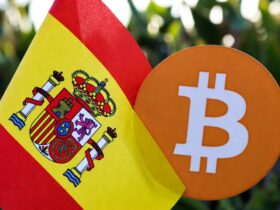For Battaglia, savings are essential to finance and reactivate the economy.
Declaring cryptocurrencies to the authorities involves risks that have to do with security.
Venezuelan trader and analyst David Battaglia warns that “taxing capital is punishing freedom.” And when analyzing the assets that are currently in the crosshairs of many politicians, he includes bitcoin (BTC) among them. However, the truth is that, for many, the creation of Satoshi is an alternative when protecting wealth against taxes that are applied arbitrarily.
His warning arises in the context that Rachel Reeves, the UK chancellor, is considering a new tax 20% on the assets of people who decide to leave the country. This with the objective of raising 2 billion pounds (GBP) and reducing an estimated fiscal deficit of up to GBP 50 billion, equivalent to 65 billion dollars (USD).
In this way, the disseminator alert about the risk that politicians will classify certain assets as sterile or unprofitable. According to Battaglia: “what is labeled as ‘unproductive capital’, whether it is money in the bank, stocks, bonds or even bitcoin, is actually savings.”
Thus, he emphasizes that This savings is money that is not consumed and that can be used to finance new companiesloans or investments. Taxing these funds, he concludes, “is punishing the foresight and capital accumulation necessary for economic growth.”


Today they define a financial asset or bitcoin above 2 million as ‘unproductive’. Tomorrow, could they define your second home as ‘unproductive’? Or your first home if it is ‘too big’? Or your savings in the bank above 100,000 euros?
David Battaglia, analyst and trader.
The reason to turn to bitcoin
In this line, bitcoin is presented as a refuge from taxes that are considered to limit financial freedom and the power to decide over one’s own assets. BTC, being decentralized and censorship-resistant, allows individuals to maintain full control over their money, outside the direct reach of tax systems that tax capital.
Battaglia also explains the burden of double or even triple taxation, arguing that wealth is not born from nothing and is built with income that has already paid “an income tax, capital gains taxes and, now, a new tax on wealth simply for having it.”
It is worth noting that the situation in Argentina offers a concrete example of declaring bitcoin and cryptocurrencies. As reported by CriptoNoticias, at the beginning of April the Customs Collection and Control Agency (ARCA) required taxpayers with more than USD 200,000 in assets to declare, among other information, the public key of their wallets.
Although a public key alone does not allow access to funds, its exposure can facilitate targeted attacks. Combined with social engineering or phishing techniques, it could be used to identify people with large holdings and make them targets for scams or extortion.
The hacks to state agencieslike the National Securities Commission, demonstrate that even sensitive information declared in good faith can end up leaked.






Leave a Reply